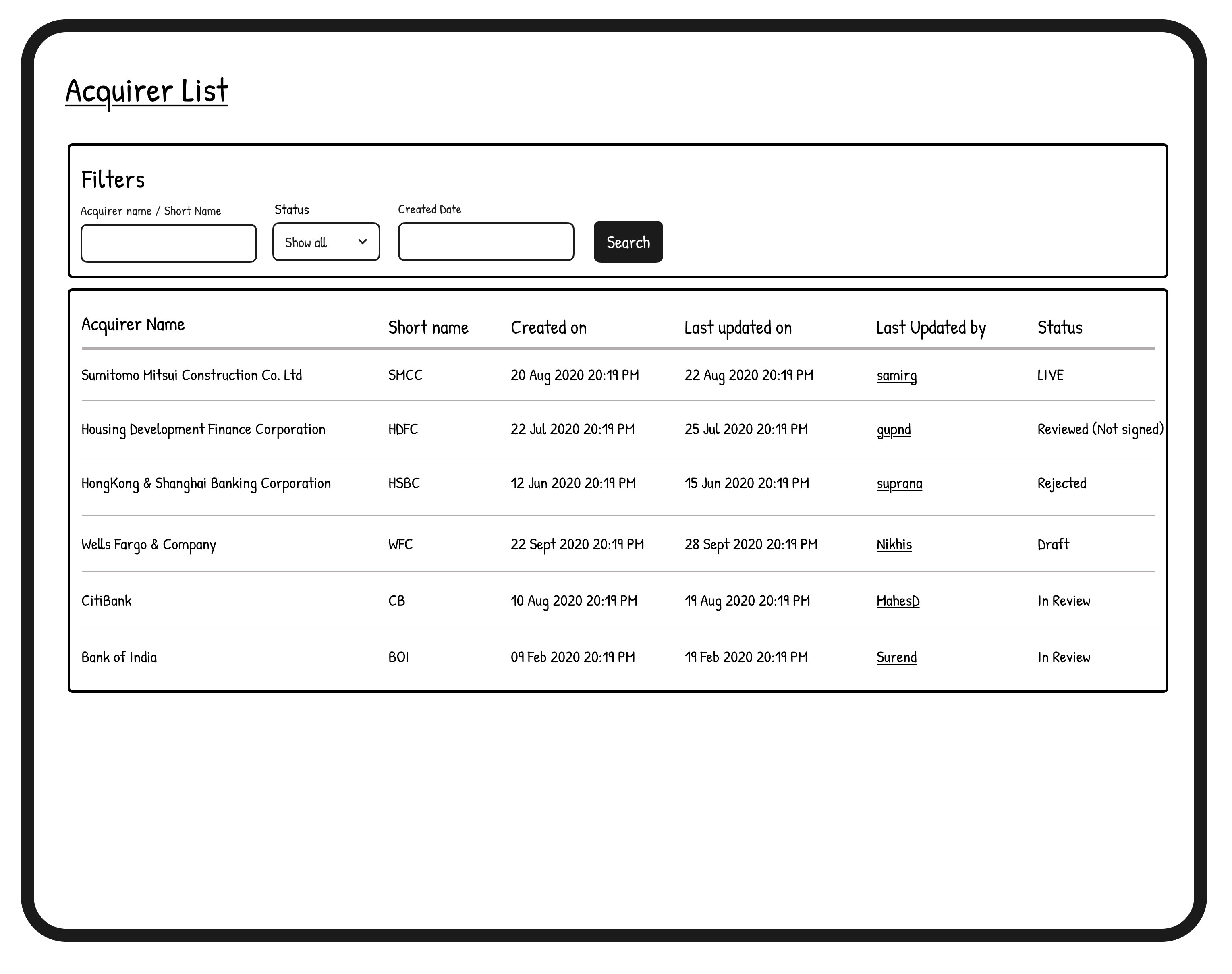Turning Insights into Action: Strategies
We translated the Research findings into design strategies that simplified data collection, streamlined team communication, and empowered acquirers—building a faster, clearer, and more scalable onboarding experience.
Simplifying Form Data and Information Collection
Replace the static multipage PDF with a centralised online form, creating a single source of truth for acquirers and internal teams.
What This Meant for Users
Transparency
Real-time visibility for all teams.
Accuracy
Built-in validation and conditional logic
Scalability
Handle multiple onboardings in parallel.
Empowering Resellers
Helper text + modern labels empower acquirers, less CDM support
Reduced Cognitive Load
Step-by-step flow guides acquirers with clarity
Wireframes
Sign up
Login
Stepper form
Onboarding Status
Automating Configuration Generation with AIQ Engine
Form data stored in a central DB; once approved by PM, the AIQ Engine auto-generates configuration files based on selected features. This removes manual configs, leaving Dev to build APIs and QA to test endpoints, with the engine tested once.
What This Meant for Users
Efficiency at Scale
Workload for the Payments team reduced by 100%, leaving only periodic maintenance.
Speed
Review and development cycle shortened dramatically — from 80 days to just 5.
Accuracy
Automated configuration ensured consistent, error-free outputs.
Wireframes
PM Review
Orchestrating Internal Communication
A centralised channel, modeled after Visa’s ‘ASK Now,’ would streamline onboarding communication, replacing email chains with transparent, structured collaboration.
What This Meant for Users
Transparency
All teams can track conversations and updates in one place.
Efficiency
Removes dependency on scattered email threads and reduces delays.
Accountability
Clear ownership of tasks and updates for each onboarding.
Consistency
Standardised communication across multiple onboardings
Wireframes
Sign up
Internal Workflow









